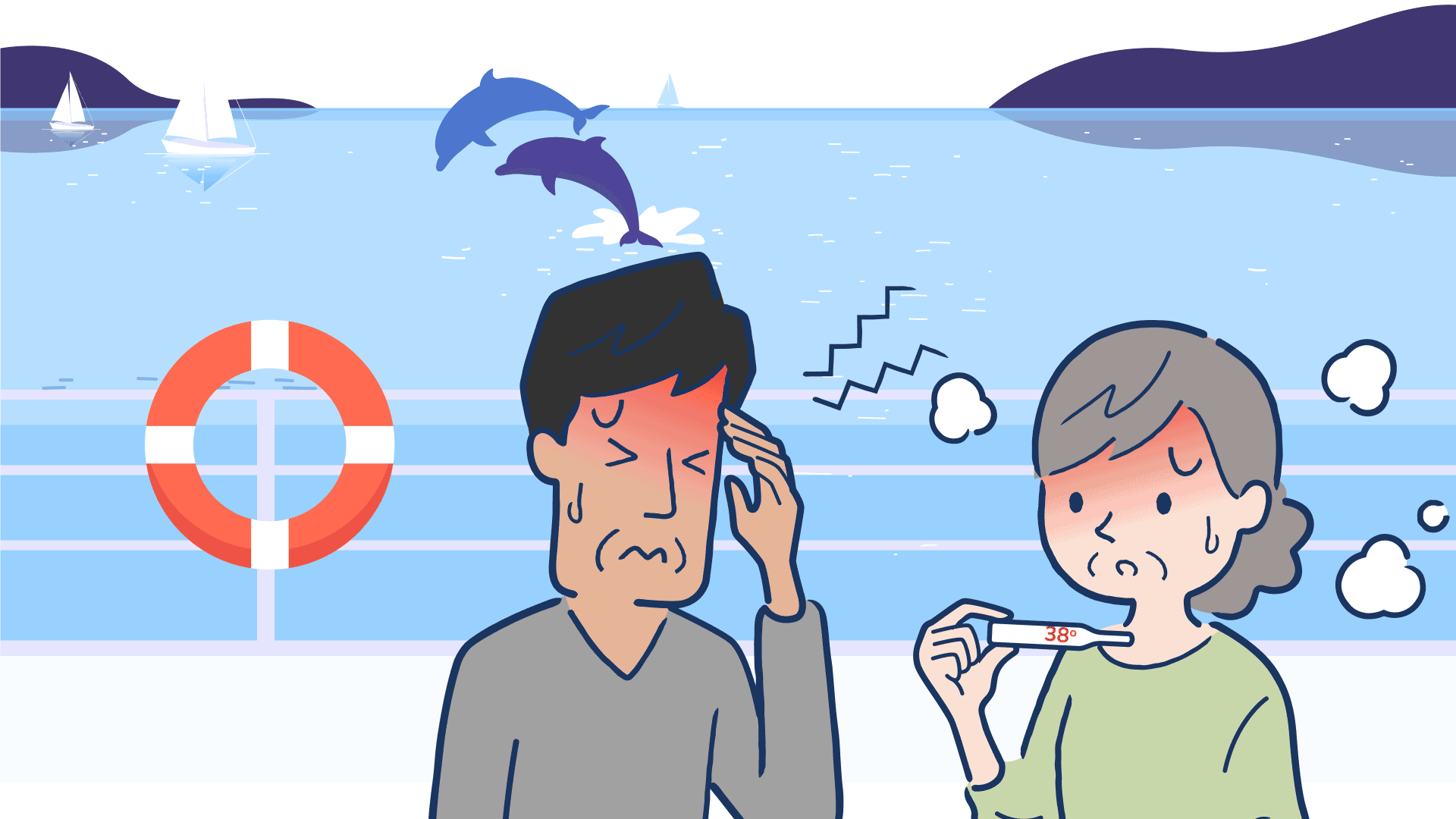Time to read : 3 Minutes
My holiday cruise came with a few surprises, and a stark reminder of how quickly plans can change with no one ‘at fault’ as my insurance company said - but someone always bears the cost of plans gone wrong.
The middle of the ocean:
When you're spending a large amount of time in the middle of the ocean, medical help is limited. If you’ve cruised before, you might already know that cruises involve intricate itineraries, carefully-orchestrated logistics, and a variety of potential risks. Shore trips involve launch departure times that must be strictly adhered to if the ship is to keep to schedule.
Full medical emergency:
Early on our third day at sea, we noticed our ship wasn’t moving. Soon afterwards, there was an announcement regarding an emergency medical evacuation.
This necessitated an unscheduled side-trip towards the nearest port.
Our ship anchored in a bay, while a boat launch scudded across from shore and evacuated an elderly passenger. This kind of experience can cost a lot without adequate travel insurance.
The captain kept us informed at each stage of the emergency, including the news that our arrival time at our first port of call would be delayed. This had a knock-on effect for many passengers, including me.
Covered for ‘unforeseen events’:
The onboard medical emergency meant a delay to any on-shore excursions. For me, my walking tour was pre-booked and prepaid, but we missed the departure time by over two hours.
I alerted the touring company via email as soon as I knew, but we were only in port for a day. By the time they replied, we’d already departed for our next destination.
This is what travel insurers consider an ‘unforeseen event’, and I was insured for this. I’ve lodged my claim with my travel insurance company and am keenly awaiting their response - and, of course, any refund to which I’m entitled.
Had I taken out the more basic level of cruise cover offered by my insurer, I’d not be entitled to this claim. The comprehensive cover I took out cost around $150, and my claim comes to around $120. There’s no excess to pay for this claim so my policy practically paid for itself by day three of my cruise.
Sea legs & other medical matters:
I travelled with my daughter, on a reputable cruise line. There was a ship’s doctor and a staffed and serviced medical bay on board. Even so, the largest and most obvious concern when cruising was demonstrated by the incident above - which is, of course, that any comprehensive medical care is a long, long way away.
My daughter had never sailed on a ship before (not counting local ferries). It took a while for her to get her sea legs. She experienced some seasickness, which is pretty common.
There was easily available medication on board (at an additional cost), and panadol. You can, of course, bring such medications with you and many passengers did exactly that. For me, this was a key learning.
A more serious incident happened on our second night at sea. Eating food from the ‘all-night burger bar’ wasn’t my kid’s best idea. Combined with her already delicate stomach, she spent half a day in our bathroom and another in bed recovering.
Our steward was concerned enough to alert the ship’s doctor, but fears of gastric flu were luckily unfounded.
After resting and rehydrating, she improved quickly though this put a dampener on our sea days.
The bottom line:
Cruises can offer good value when it comes to holiday costs. Food and accommodation are usually included in your fare.
Unexpected events can domino, throwing out schedules and your pre-bookings. It’s possible to have this covered by your travel insurer’s cruise cover component.
A medical evacuation aboard ship reminded me that good travel insurance is not a luxury when you’re spending several days in the middle of the sea.
Take travel sickness remedies with you before embarking on your cruise! You’ll thank yourself later.
